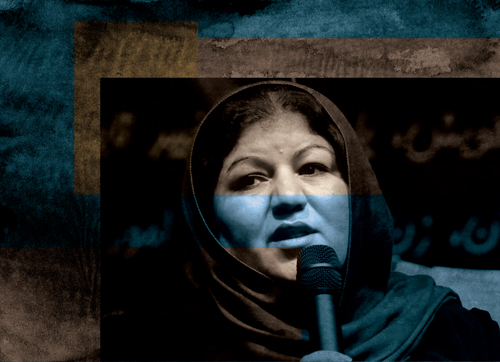Hengama Anwari is a Commissioner on the Afghanistan Independent Human Rights Commission and the founder of the Women and Children’s Legal Research Foundation.
What gives you hope for Afghanistan’s future?
The strength of the women’s movement in Afghanistan since the fall of the Taliban is important. Regardless of whether you are speaking of the movement as a government or non-governmental initiative, or as a social or political movement, the persistent belief amongst women that they have equal rights with men and their efforts to achieve their rights have been remarkable. They have acted collectively when women’s common interests have been threatened. On the whole, the awakening of women and the collective action of the movement have been positive developments since the time of the Taliban.
What is one of the best achievements since the time of the Taliban?
Article 22 of the Constitution on gender equality is the best achievement. It allows us to take more meaningful and efficient steps to fulfil women’s rights.
What is your worst fear today?
In order to have a healthy and discrimination-free society, we must first prepare the ground for both women and men to grow and be empowered, and to work collaboratively with each other for societal development. Doing this requires a significant shift and reorientation in prevailing ways of thinking, and the breaking up of traditions. 10 years is only a drop in the ocean that is the process of changing a society. It is an extremely short period of time to achieve such a lofty objective. My worst fear is that the achievements we have made so far are fragile.
What are the biggest challenges facing Afghanistan?
Our first and major challenge is the issue of security. After this, it is the lack of clarity and certainty around Afghanistan’s future. Although we are all talking about the transition of power and peace talks, the Afghan people lack vision regarding their future and this will prevent any truly strategic initiatives. Racial, ethnic, and linguistic disputes are other threatening issues that have often been stirred in recent times.
Will the present-day Afghanistan allow a recurrence of the closing of schools to girls and the blocking of women’s social participation?
If we consider the people as a whole, such a situation is very unlikely. In the past, political pressures and the ruling system’s structure prevented girls from going to school and prohibited women from working. It was never families choosing not to send their daughters to school. If Afghanistan does not have a powerful system to protect and retain the achievements, because our governmental structures are not strong enough and the social structures have not yet adequately developed, these achievements could be lost. But the people of Afghanistan have reached a level of consciousness about the importance of seeking education for girls.
What are the major factors deterring women’s participation in social, economic, political, and cultural spheres?
In addition to the challenges I have already mentioned, a lack of political commitment, and reprehensible customs and traditions deter women’s participation.
What are the major demands of women?
First, there should be emphasis on retaining and implementing article 22 of the Constitution. Legal equality between men and women is central to many societal problems: legal equality ensures gender equality in practice. Based on that article, plans and strategies can be developed to promote equality.
Secondly, women demand equal access to opportunities for girls and boys. Unfortunately, we see a real inequality in opportunities in favour of boys, both in the family and the society. Another important demand is respect for women’s dignity.
Which sources and centres of power can be relied upon to promote women’s rights and demands?
Many organisations, mechanisms, and institutions have been established in the past 10 years, which we can refer to as reliable sources. Civil society is one of the solid supports for women. The Afghanistan Independent Human Rights Commission, the Ministry of Women’s Affairs and other institutions working for women are dependable sources. We should also remember that all of these institutions are new and need technical and political support in order to become powerful.
“Unveiling Afghanistan, the Unheard Voices of Progress” is a campaign by Armanshahr and FIDH, which explores views held by Afghan civil society actors. Over 50 days, 50 influential social, political, and cultural actors hope to spark conversation and debate about building a society that is inclusive of women’s and human rights in Afghanistan.
Follow 50 interviews drawn from the “Unveiling Afghanistan campaign” daily on the Huffington Post. Follow Unveiling Afghanistan on FIDH Twitter: www.twitter.com/fidh_en


